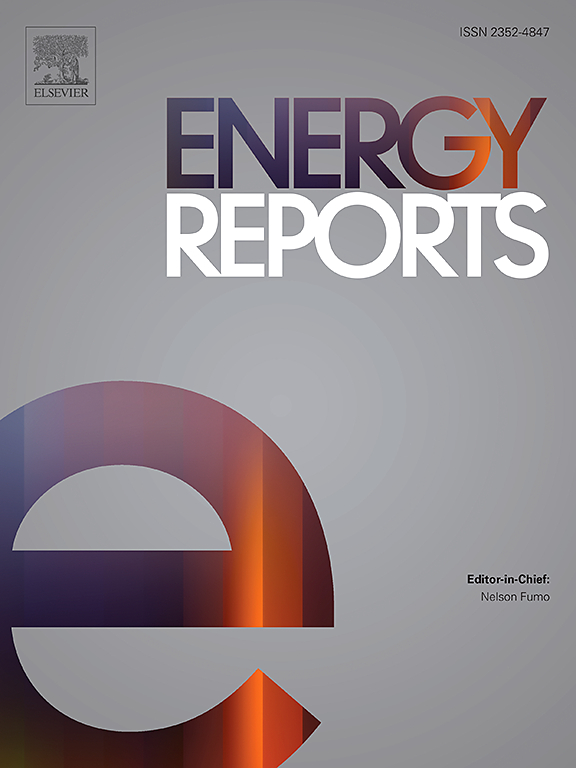Evaluating the influence of the compression ratio on the combustion process using methanol, gasoline, and methanol-gasoline blends
IF 5.1
3区 工程技术
Q2 ENERGY & FUELS
引用次数: 0
Abstract
In response to global energy and environmental challenges, this study systematically evaluates performance of methanol-gasoline blends (M100, M85) in comparison to pure gasoline in a spark-ignition (SI) engine. Through experimental data and numerical simulations, the combustion characteristics, energy flow distribution, and thermomechanical conversion processes of the three fuels were analyzed across compression ratios (CRs) ranging from 11 to 15. Under full-load conditions at 3500 r/min, gasoline showed 7.58 % and 8.69 % higher power outputs than M100 and M85, respectively. Additionally, when operating at the same speed under high loads (exceeding 125 Nm), methanol demonstrated better fuel economy than gasoline. This improvement stems from increased high-pressure cycle work, reduced heat transfer, and incomplete combustion losses. Both the effective expansion ratio (EER) and energy economy efficiency (EEE) peaked at a CR of approximately 13, beyond which efficiency gains plateaued while knock propensity intensified. Between 2500 and 3500 r/min with CR exceeding 13, methanol blends exhibited 18–23 % higher efficiency than gasoline, owing to their superior knock resistance resulting from greater octane sensitivity. The combustion characteristics of M85 fell between those of gasoline and M100, highlighting its potential as promising alternative fuel. These findings provide critical insights into enhancing methanol-gasoline engines through CR optimization, combustion phasing (CA50) calibration, and implementation of an effective thermal conversion process. The study systematically analyzes the combustion characteristics and energy flow synergy of high-proportion methanol-gasoline blends under high CR, along with the interactive effects of CR, load, and combustion timing.
评估压缩比对甲醇、汽油和甲醇-汽油混合物燃烧过程的影响
为了应对全球能源和环境挑战,本研究系统地评估了甲醇-汽油混合物(M100, M85)在火花点火(SI)发动机中的性能,并与纯汽油进行了比较。通过实验数据和数值模拟,分析了3种燃料在压缩比(CRs)为11 ~ 15时的燃烧特性、能量流分布和热力转换过程。在3500 r/min的满负荷工况下,汽油的输出功率比M100和M85分别高出7.58 %和8.69 %。此外,在高负荷(超过125 Nm)下以相同速度运行时,甲醇比汽油表现出更好的燃油经济性。这种改进源于高压循环工作的增加、传热的减少和不完全燃烧损失。有效膨胀比(EER)和能源经济效率(EEE)在CR约为13时达到峰值,超过该值后,效率增长趋于平稳,爆震倾向加剧。在2500 - 3500 r/min之间,CR超过13时,甲醇混合物的效率比汽油高出18-23 %,这是由于它们具有更高的辛烷值敏感性,从而具有更好的抗爆性能。M85的燃烧特性介于汽油和M100之间,凸显了其作为替代燃料的潜力。这些发现为通过CR优化、燃烧相位(CA50)校准和实施有效的热转换过程来增强甲醇-汽油发动机提供了重要见解。本研究系统分析了高CR下高比例甲醇-汽油混合燃料的燃烧特性和能量流协同效应,以及CR、负荷和燃烧时机的交互作用。
本文章由计算机程序翻译,如有差异,请以英文原文为准。
求助全文
约1分钟内获得全文
求助全文
来源期刊

Energy Reports
Energy-General Energy
CiteScore
8.20
自引率
13.50%
发文量
2608
审稿时长
38 days
期刊介绍:
Energy Reports is a new online multidisciplinary open access journal which focuses on publishing new research in the area of Energy with a rapid review and publication time. Energy Reports will be open to direct submissions and also to submissions from other Elsevier Energy journals, whose Editors have determined that Energy Reports would be a better fit.
 求助内容:
求助内容: 应助结果提醒方式:
应助结果提醒方式:


